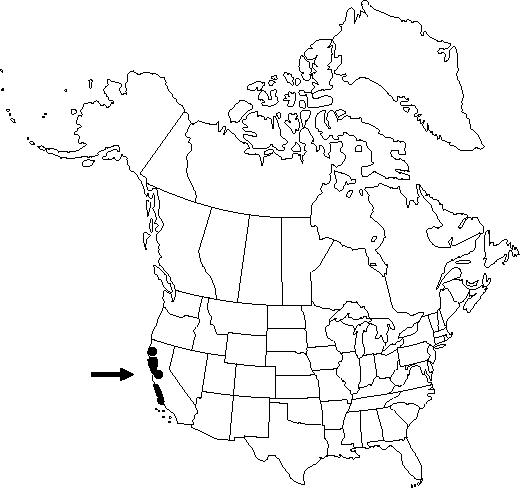Difference between revisions of "Cupressus sargentii"
Fl. Calif. 1: 61. 1909.
Common names: Sargent cypress
Synonyms: Cupressus sargentii var. duttonii Jepson
Treatment appears in FNA Volume 2.
FNA>Volume Importer |
FNA>Volume Importer |
||
| Line 48: | Line 48: | ||
|publication year=1909 | |publication year=1909 | ||
|special status= | |special status= | ||
| − | |source xml=https://jpend@bitbucket.org/aafc-mbb/fna-data-curation.git/src/ | + | |source xml=https://jpend@bitbucket.org/aafc-mbb/fna-data-curation.git/src/8f726806613d60c220dc4493de13607dd3150896/coarse_grained_fna_xml/V2/V2_649.xml |
|genus=Cupressus | |genus=Cupressus | ||
|species=Cupressus sargentii | |species=Cupressus sargentii | ||
Revision as of 15:49, 18 September 2019
Trees to 25 m, but often shrubby and less than 10 m; crown broader than tall or columnar, dense or open. Bark rough, furrowed, fibrous. Branchlets decussate, (1.5–)2–2.5 mm diam. Leaves usually with inconspicuous, shallow, pitlike, abaxial gland that usually does not produce drop of resin, often glaucous. Pollen cones mostly 3–4 × 2 mm; pollen sacs 3–4. Seed cones usually globose, mostly 2–2.5 cm, brown or gray, not glaucous; scales mostly 3–4 pairs, with scattered resin blisters, umbos inconspicuous or to 4 mm. Seeds 4–6 mm, dark brown, faintly to prominently glaucous.
Habitat: Chaparral, foothill woodland, and lower montane forests, on serpentine
Elevation: 200–1100 m
Discussion
Selected References
None.
Lower Taxa
None.
